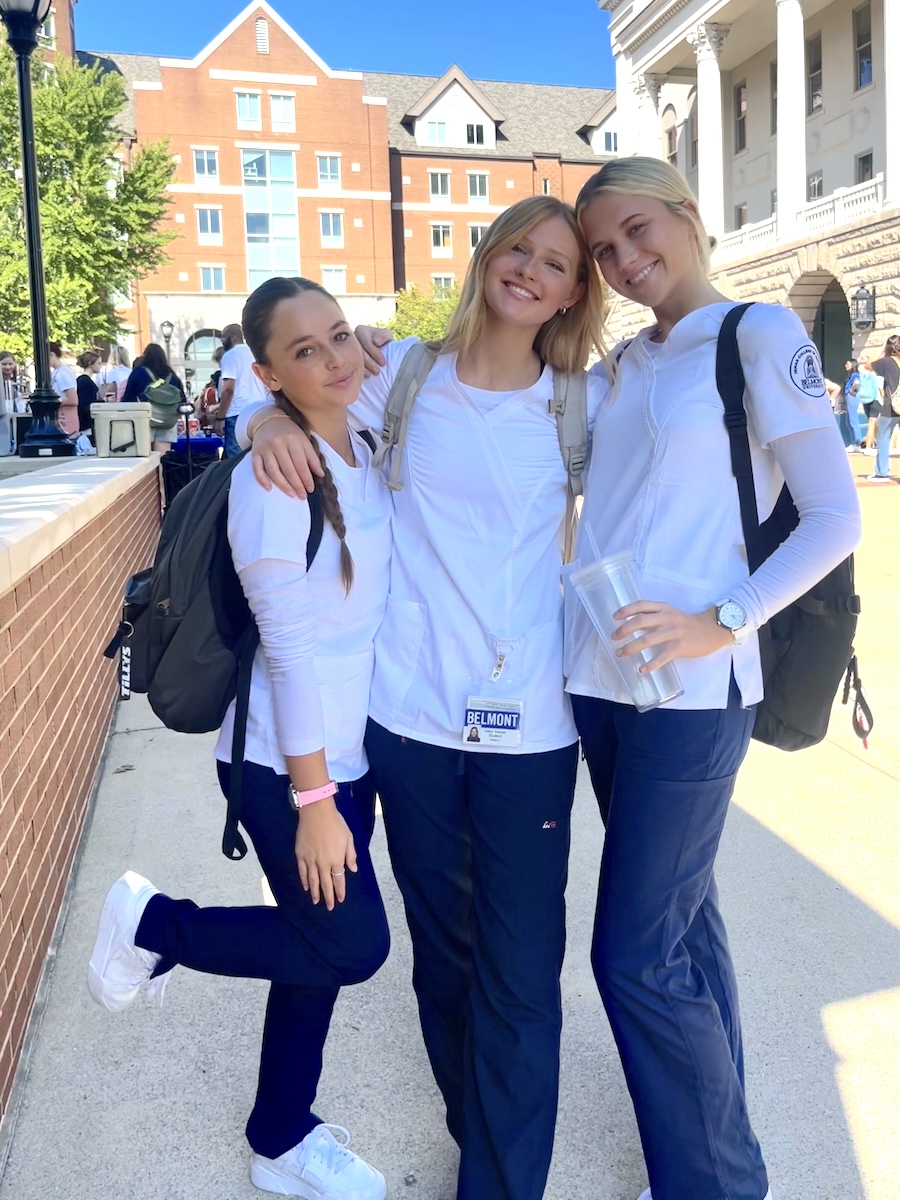How Haley Weaver's careful observation made a critical difference
When Haley Weaver (‘26) walked into her patient's room at TriStar Centennial Medical Center earlier this month, everything seemed routine. The 73-year-old patient was alert, talkative and enjoying her breakfast. Less than two hours later, however, Weaver's careful monitoring and quick action would prove crucial in identifying the early signs of a stroke, leading to rapid intervention.
For nursing students, clinical rotations can be both exciting and intimidating — a chance to put classroom knowledge into practice while navigating the fast-paced reality of hospital care. During this particular rotation, Weaver was feeling the weight of extra responsibility. She had been selected as the designated medication nurse for the day, a role that rotates weekly among students.
classroom knowledge into practice while navigating the fast-paced reality of hospital care. During this particular rotation, Weaver was feeling the weight of extra responsibility. She had been selected as the designated medication nurse for the day, a role that rotates weekly among students.
After carefully reviewing each medication with her instructor, she returned to her patient's room. The same 73-year-old woman who had been enjoying breakfast earlier was now experiencing a hypertensive crisis. Weaver administered the medication and, while protocol called for checking on the patient again in 30 minutes, she decided to stay. Her recent pharmacology coursework taught her how quickly blood pressure medications can affect a patient. With that in mind, she was hesitant to leave. Weaver then noticed subtle but concerning changes.
"She was struggling to eat her pancakes," Weaver recalled. "Then she started falling asleep while chewing, which was completely different from how alert she had been earlier. She was looking past me instead of making eye contact, and her speech was becoming slurred."
When the charge nurse arrived for routine rounds, Weaver immediately voiced her concerns, describing the changes she had observed from the patient's baseline condition.
"If you hadn't seen her in the morning, you might have thought this was her normal state," Weaver explained. "But I knew she had been talking and laughing with me earlier. I kept thinking about how different she was now."
The charge nurse's subsequent assessment confirmed Weaver's suspicions: the patient was experiencing a stroke. Within minutes, the patient was rushed for a CT scan, revealing a clot in her right carotid artery.
As the situation unfolded, Weaver found herself becoming a crucial source of information for the medical team. When the stroke specialist began asking questions about the patient's timeline, Weaver was able to provide precise details that others couldn't — exactly when medications were administered, when symptoms began and how the patient's condition had changed.
Later, when speaking with the patient's sister, she was able to provide a detailed account of everything that had happened — a responsibility she hadn't experienced before.
"It was nice to have all the information to give to her because I know how it is having someone in the hospital and not fully understanding what happened," Weaver said. "I was able to give her the full rundown from a first-person point-of-view."
The experience left a profound impact on Weaver, challenging her in ways she hadn't expected but ultimately reinforcing her commitment to nursing.
"It made me realize that assessment is crucial and can make such an impact in the long run," she said.
Weaver credits her Belmont education, particularly her coursework in care management, pathophysiology and pharmacology, for preparing her to handle such a critical situation.
"Because of what we learned in pharmacology with Dr. Jamie Adam, I understood exactly what the medications were doing," Weaver said. "The depth that pharmacology goes into, I knew exactly what it was doing to the vessels and to the sympathetic nervous system."
She also emphasized the role of her clinical instructor, Sarah Cook, in creating an environment where students feel empowered to speak up about their concerns. According to Weaver, Cook has created an atmosphere where students feel confident asking questions and voicing concerns.
The experience made Weaver realize the impact she can have, even as a student nurse.
“Yes, you're in school, you're learning, but you make a lot more impact than you think you do,” she said. “Even though you might feel like you're in the way sometimes, you're helping everyone in some way. You can make a real difference."
Learn More
Learn more about nursing at Belmont

